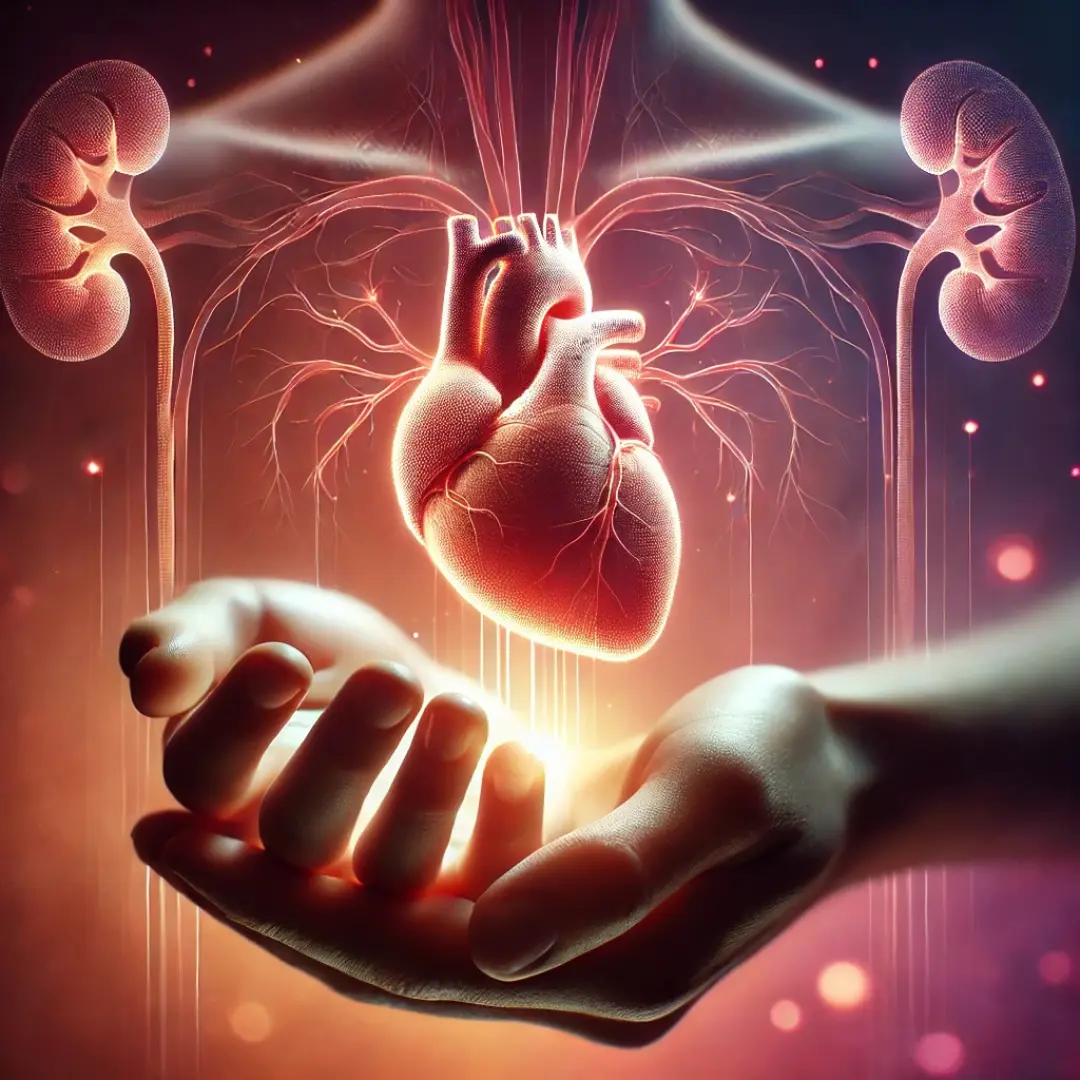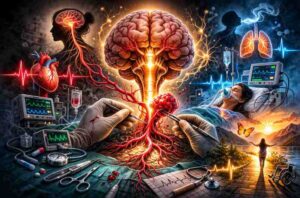When it comes to donating the organs of your loved ones, humans all react differently
“She was eating her lunch at home and collapsed on the dining table,” a panic-stricken daughter brought her 68-year-old mom to the emergency room. She was completely befuddled about what was happening. Everything had been fine just minutes before: her mother had been regaling her with stories of an errant uncle, when suddenly, she became unresponsive. Her blood pressure at admission was astronomical. She had to be tubed and immediately connected to a ventilator, as she wasn’t breathing spontaneously. Her records showed she was on blood thinners for a cardiac bypass she had had a few years ago. The CT scan showed a massive haemorrhage within the brainstem, the central core of the brain and in areas surrounding it. Imagine drawing a giant brain the size of kabutar khana; all the pigeon poop was blood.
I spoke with her daughter and son-in-law who were present. “I would not suggest doing an operation, because surgery, at best, may save her life but will leave her vegetative,” I explained honestly. “But we have to do something,” the daughter insisted emphatically. Most relatives want to go all out for their loved ones because the guilt of not doing everything leaves them devastated. “We will give her medication to reduce the swelling in the brain and keep the blood pressure down, and see if she recovers any of her brain function,” I empathetically made them understand, because telling someone upfront that nothing can be done is equally shocking and could be perceived as having given up too soon.
The next day, she was declared brain dead. While all her other organs were working well with an external support system, the command centre of her body had completely shut down. This technically certifies that a patient is likely to never regain consciousness again. “So how much time do we have until the heart stops,” the family asked, slowing coming to terms with the crushing news. “A few hours to about a week or two,” I explained. “What do we do until then?” was the next reasonable question. “Allow for nature to take its course,” I consoled them.
As surgeons, we are not supposed to talk to relatives about organ donation. There could be a conflict of interest. A separate team takes over and explains to the family that if a brain- dead patient fulfils certain criteria, they could be eligible to donate their organs – eyes, heart, lungs, liver, kidney, pancreas – and help others in need of these survive. We’ve heard true stories of how deeply connected a spouse feels to a stranger in whom their loved one’s heart has been transplanted, even though the law requires anonymity of the recipient. Esoteric. Enigmatic. But true. We’ve also heard stories of organ donors waking up on the operating table after being declared brain dead just as doctors were preparing to harvest organs. Abstruse. Arcane. But true. Medicine is fraught with freakiness.
There are innumerable reasons for a family to decide in favour of or against donating organs. In India, very few people make their intentions known when they are alive, and hence, it is up to the next of kin to take a call. When I trained in Chicago a decade ago, as they made my identity card for the hospital, the first question I was asked wasn’t my nationality, race, religion, or orientation, but whether I would like to donate my organs if I were in a situation where they could be used. “But I’m only here for a year,” I told the lady at the counter, a little petrified. “Yes, sir,” she acknowledged, “But you also know how life is,” she reminded me. I forgot I was in America – a country where more people have guns than gumption.
Our patient’s family decided against donating her organs. “We want the sanctity of her body to be preserved when we perform her last rites,” they justified. She passed away four days later. In some cultures, beliefs regarding life, death, and rebirth influence the decision to donate organs. Others believe that the body should not be harmed after death. In many societies, death is surrounded by rituals and taboos. There are superstitions that suggest tampering with the body can invite bad luck or prevent the soul from resting in peace. I’m not sure if this is a myth or cultural stereotype, but I’ve heard that the Japanese rarely opt for cardiac bypass surgeries because they firmly believe that their soul would leave the body if their chest is opened.
A few years ago, I had operated on a young girl who came to us after two days of high fever. She was in a deeply comatose condition because of a possible fulminant brain swelling from an unknown cause. We were unable to salvage her brain, but her family made the decision to donate all her organs – including her hand, which was successfully transplanted in an amputee and continues to work well even today.
Recently, the mother of a physiotherapist in the hospital developed a spontaneous clot in the artery that supplies blood to the entire intestine. Within a few hours, she developed gangrene of the small bowel and had to undergo an emergency resection of 20 feet of the small intestine. The only way for her to be able to eat now is to have an intestinal transplant, for which she needs a donor. Until then, she gets her nutrition intravenously, which has its own set of complications and can lead to premature death.
“She’s recovering well, but we are eagerly waiting for a donor,” her son lamented. They were told that the hospital she was in often gets young adults with severe head injuries that cannot be salvaged. Many of these families of brain-dead patients consent to organ donation out of goodwill and love. “Someone who was considered recently was extremely obese with a lot of fat around the intestine and hence wasn’t eligible. Another patient did not match her type,” he tells me daily. “In such a case, we can’t even use a living donor like we can with the kidney or liver, so that makes it even harder – or else I would have donated part of my intestine,” he stated, a tear rolling down his face.
“How does it feel to wait for someone to die so that your mother might be saved?” I asked him candidly. He cringed, his face a grimace as his body went into a bit of a shiver. “I would never wish for anyone to be hurt. I’m in the profession of healing, and here I am, praying for someone to show up for my mother,” he confessed. “Probably someone even younger than her!”
Profane and sacred. Blasphemous and reverent. Material and transcendental.





16 thoughts on “The Surgical Donor”
You have touched upon one of the several confusing aspect of life – where to survive one has to wish for another’s demise and how do we wrap this around our moral compass. As with other existential questions this one too remains unanswered.
For me I appreciate the dilemma which you Drs often have to go through to explain to the patient and relatives their state of health as well as what can or cannot be done in moments of desperation.
We thank you and urge you to be candid wirg the sutuatiin and state the position as is so that famiky members will maje informed decisions. God bless
It’s a terrible situation when a patient’s close relative has to make an important decision of the patient’s life. To get him/her to continue life in a vegetative state or not.
It’s very difficult for a patient’s relative make to accept and make a decision – when the patient’s in a vegetative state.
Extremely well penned down.
Your words beautifully capture the complexity of life and death. Organ donation is a hugely personal decision and creates both emotional and ethical dilemmas, not to mention religious ones too. Your balance of medical facts with empathy is truly commendable.
As for me, this has only reinforced my belief in the importance of organ donation, and I’ve already made my choice almost a decade ago.
Thank you for sharing these insights and inspiring thoughts on such a vital subject.
Good article – I fully support organ donations – your passing can improve someone else’s life – why not 🤔
Dearest Dr Mazda sir …….
Very well explained & written peace giving lots of information to lay men….
Although it is absolutely kind Gesture on the part of close Relatives to take a positive call regarding Organs Donation of a brain Dead Patient many a times they need to be explained by professionals the importance & repercussions of Donation bcos their state of mind is not stable at that point of time …….
You have given all different perspectives in your Article explaining Organ Donation so nicely….
Thanks a million & keep enlightening us with your informative write ups…
God bless & Good Luck
I have early on in my life donated all my organs while wife does not want to do so.
I have early on in my life donated all my organs while wife does not want to do so.
Thank you, Dr. Mazda for the great work you do!
You had saved MY 96-years old Dad’s life with your skillful BRAIN Surgery.
God Bless you.
Los Angeles, USA
Nice one, Maaz.
Bless you for the article of yours. But I hope I am never in a situation to take decisions like these. Sounds selfish, but I really mean it.🙏🏻
I believe if a person wishes do donate a single organ while being alive doing a charity work but not for monatory gain would be the best thing in his life fulfillment and others to follow.
A very sensitive subject, organ donation. But we humans r so attached to our physical body that many shudder at the thought of parts being dug out even when we have left this cycle of life. It’s a great and noble act if more people could accept.
Good article – I fully support organ donations.
Difficult decision to make especially given cultural implications. But if donating a loved one’s organs can give another person a chance to live, it’s it’s a good thing.
Great – I should certainly pronounce, impressed with your web site. I had no trouble navigating through all the tabs and related information ended up being truly simple to do to access. I recently found what I hoped for before you know it at all. Reasonably unusual. Is likely to appreciate it for those who add forums or something, site theme . a tones way for your customer to communicate. Excellent task.